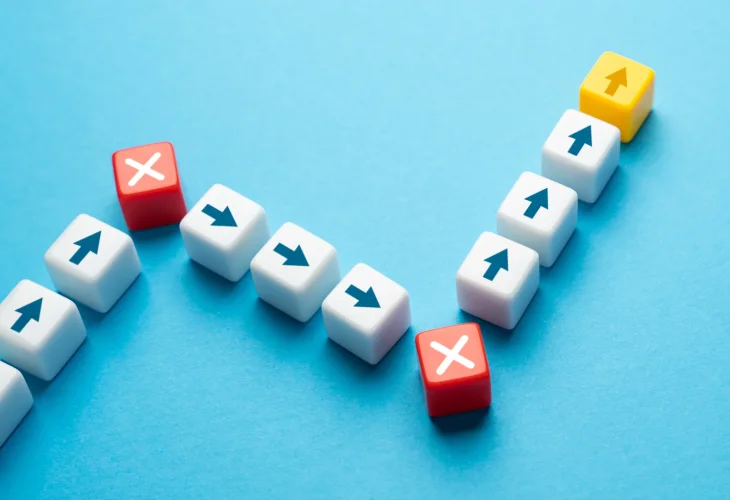Personality Development
The Wisdom of Mistakes: How to Learn and Grow from Failures
Failures are an integral part of the human journey, and can be a powerful source of growth and learning.
 (Photo: Shutterstock)
(Photo: Shutterstock)Failure can be a challenging and discouraging experience, so much so that we make efforts to avoid mistakes, and we view them as something to hide. However, failures are an integral part of the human process, and indeed, they can be a powerful source of growth and learning. The key is how we choose to perceive them and if we use them to evolve and become better.
1. Failure as a Step on the Path to Success
Failure is not the end of the road but a step on the path to success- every great achievement commonly involves numerous failures. Presidents, authors, entrepreneurs, and many other successful individuals serve as a living testimony that failures do not prevent success, but are an important tool leading to it. Each failure presents us with the opportunity to learn and seek creative solutions. Undoubtedly, we often learn more from failure than from direct success.
2. Seeing Lessons in Failures
Failure does not have to be a negative experience if we can identify the lessons it offers us. Instead of avoiding mistakes or becoming discouraged by them, it's beneficial to take time to understand the lessons. Ask yourself:
What didn't work?
What could I have done differently?
What skills can I improve to avoid the next failure?
What did I learn about myself in the process?
Failure offers us important lessons about how we think, tackle problems, and respond to challenges.
3. Perceiving Failure as a Step Forward
To turn failure into a learning opportunity, it is essential to change our perception of failures. Instead of seeing them as something to avoid or hide, we should accept them as a natural part of our developmental process. When we understand that failure is just another step on the path to success, it no longer frightens us, but becomes an opportunity for improvement.
4. Using Failure as Motivation for Action
Failure can serve as a strong motivator for action if we change the way we perceive it. Instead of focusing on pain or missed opportunities, it is better to see failure as a push to move forward, to improve ourselves, and to explore new ways to tackle challenges. Do not get stuck in the failure itself; continue to learn from it and move toward your goal with more experience.
5. Conclusion: Failure is Not the End – It’s the Beginning
Failure can be tough and disappointing, but when we choose to learn from it, it becomes an important step on the path to personal development. Each time we fail, we not only become stronger but also develop the ability to understand ourselves and how we can progress toward our goals.

